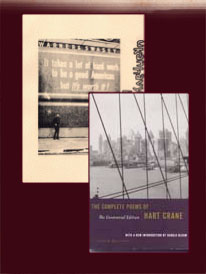A GOOD STARTING PLACE
Walt Whitman (1819-1892)
The importance of starting your poetry studies with Walt Whitman is that he changed the way poets expressed themselves and influenced all poetry thereafter. Many poets, including those from this area acknowledge his influence in essays and poems of their own.
Key Work:
Leaves of Grass
Teaching resources:
The Teachers and Writers Guide to Walt Whitman, Teacher and Writers Collaborative, NYC
Among the contributors to this volume are Allen Ginsberg, Kenneth Koch and Langston Hughes.
Poetry Speaks: Hear Great Poets Read Their Own Work from Tennyson to Plath.(Book with 3 Audio CDs)
Elise Paschen and Rebekkah Presson Mosby
Blue Pastures: Mary Oliver—chapter “My Friend Walt Whitman”, Harcourt Brace and Compa ny, 1995. ny, 1995.
Discussion points
ALL OF THE TRADITIONAL POETRY TERMS ARE APPLICABLE (see Glossary)
- His rhymes were inner rhymes not only end-rhymes
- His lines were long because they needed to be
- His language was “of the people”
- His rhythm was of the spoken work as he heard it
- He dealt with war, workers, himself, the look of the land, political issues etc.
- His poetry was rejected many times. Leaves of Grass was self published.
- Versions were published as he expanded it several times.
- His life was complex in many ways.
> Walt Whitman Lesson
Web resources:
The Whitman Collection
http://etext.virginia.edu/whitman
The Walt Whitman Archive
www.whitmanarchive.org
American Poems
www.americanpoems.com/poets/whatwhitman
Lesson One
Cleveland is fortunate to have a vibrant local poetry scene. Understand the history of Cleveland poetry by studying the Cleveland Poetry Chronology put together by Dr. Larry Smith.
Start reading poems. Find poems that interest you, and use them as a point of departure for learning more. What topics appeal to you? What style grabs your attention? Think in terms of three major areas:
Lives/Neighborhood
City/Community
Natural Environment
To get started, click here to find 337 poems by 125 poets whose work appeared in the seminal literary anthology ArtCrimes published by Steven Smith.
You can also check out deep cleveland junkmail oracle’s “poem o’ the week” here, including a seven-year archive at the bottom of the page, to read poems inspired by the city of Cleveland and its surrounding areas.
Go to your local library and try to find books by Cleveland poets. Think in terms of how a poem that interests you fits into a larger collection by an individual poet.
> Ray McNiece / Cleveland Poetry Scenes
Lesson Two
Identify one local poet whose work you would like to explore.
Think about why the subjects they write about interest them and you.
Lesson Three
Identify a poet of historical significance. When did the poet live, and when did he or she die? How did the poet work at his or her art?
Lesson Four
Select a local poet living today whose work you like. Plan to interview/visit this person in his/her workplace or studio. Think about the questions you would like to ask. You might start by looking carefully at the workplace and describing it as if you were a newspaper reporter. How did this poet become a poet?
Lesson Five
> Poetry Scavenger Hunt
Lesson Six
James Kilgore
“What Color are You?”
Standard:
Topic: Race, culture, identity, history
Objective: To decode vocabulary and symbolism as a means to analyze text
Materials: Cleveland Poetry Scenes- A Panorama and Anthology
Web Page: www.clevelandpoetryarchive.com
Procedure:
- Students will look at website
- Volunteers will read selected stanzas of the poem, “What Color are You?’
- Students will work in groups to discuss what aspects of race, culture, history or identity are found in the poem
- Students will each write a question that they would ask if they were the teacher about the poem in regard to race, history, culture or identity
- Students will write a poem of their own that has a title with a question and is a reflection of their thoughts from reading this poem
Credit: Beverly E. Byrd-Lloyd, Chair, English Department, John Hay High School, Cleveland Metropolitan School District
|